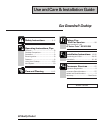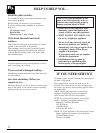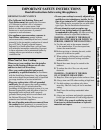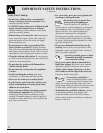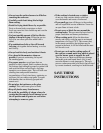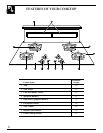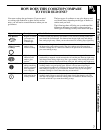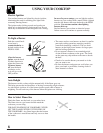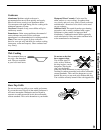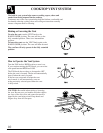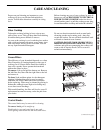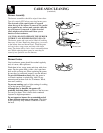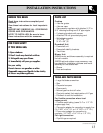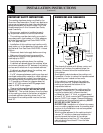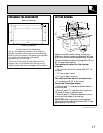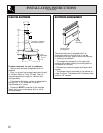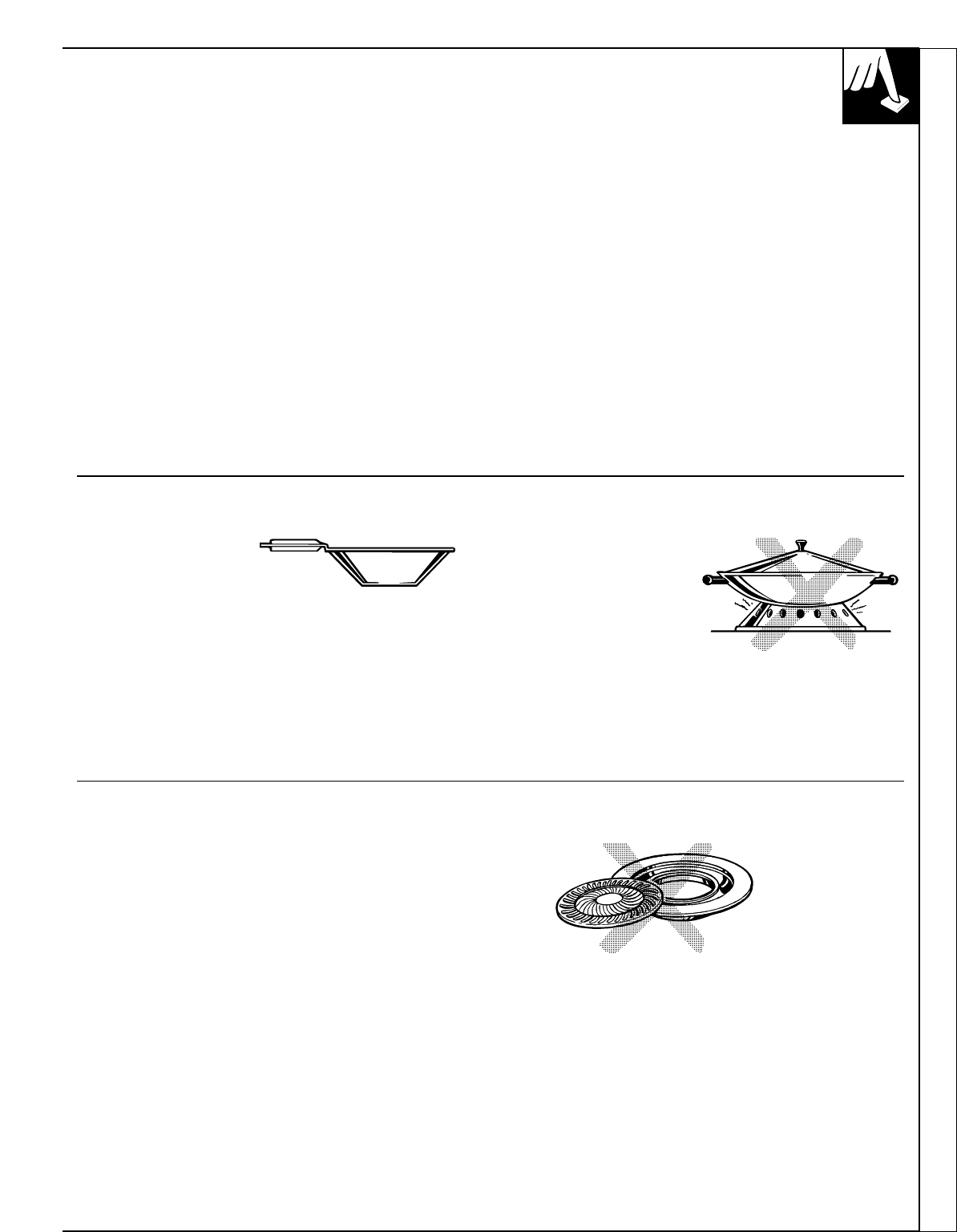
9
Using Your Cooktop
9
Cookware
Aluminum: Medium-weight cookware is
recommended because it heats quickly and evenly.
Most foods brown evenly in an aluminum skillet.
Use saucepans with tight-fitting lids for cooking with
minimum amounts of water.
Cast Iron: If heated slowly, most skillets will give
satisfactory results.
Enamelware: Under some conditions, the enamel of
some cookware may melt. Follow cookware
manufacturer’s recommendations for cooking methods.
Glass: There are two types of glass cookware—
those for oven use only and those for surface cooking
(saucepans, coffee and teapots). Glass conducts heat
very slowly.
Heatproof Glass Ceramic: Can be used for
either surface or oven cooking. It conducts heat
very slowly and cools very slowly. Check cookware
manufacturer’s directions to be sure it can be used
on gas cooktops.
Stainless Steel: This metal alone has poor heating
properties, and is usually combined with copper,
aluminum or other metals for improved heat
distribution. Combination metal skillets generally
work satisfactorily if they are used at medium heat
as the manufacturer recommends.
Wok Cooking
We recommend that you
use only a flat-bottomed
wok. They are available
at your local retail store.
Do not use woks that
have support rings.
Use of these types of
woks, with or without
the ring in place, can be
dangerous. Placing the
ring over the burner
grate may cause the burner to work improperly
resulting in carbon monoxide levels above allowable
current standards. This could be dangerous to your
health. Do not try to use such woks without the ring.
You could be seriously burned if the wok tipped over.
Stove Top Grills
Do not use stove top grills on your sealed gas burners.
If you use the stove top grill on the sealed gas burner it
will cause incomplete combustion and can result in
exposure to carbon monoxide levels above allowable
current standards. This can be hazardous to your health.



